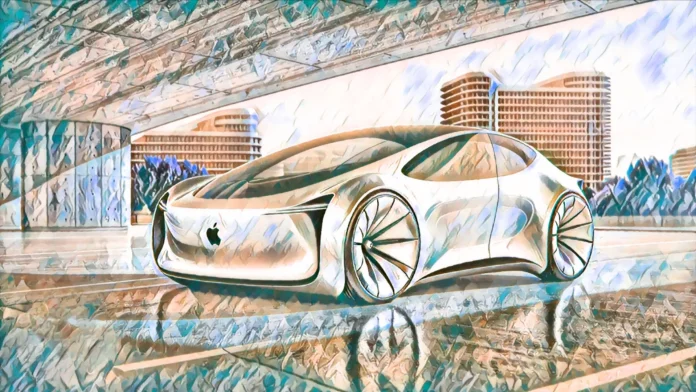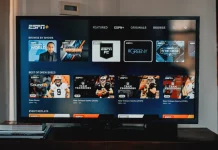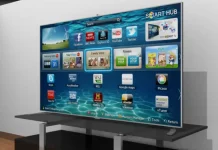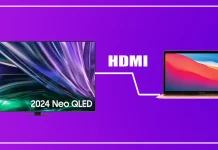While the Apple Car has failed, many of us find this story even more personal. In the sense that even though we all knew it was just a concept, there was hope that one day we could get behind the wheel of an Apple Car and see what Apple had to offer in a new market. So, I decided to talk to John Holder, author of The Cupertino Bulletin, to gauge how this news would affect the industry and Apple.
Let’s start with the easiest one. As someone following Apple for years, were you upset about this news?
It was expected. I won’t say that I was upset because I realized that everything was coming to that. But I experienced some disappointment anyway, in one form or another. In any case, it was an interesting project, and many people worked on it. And, of course, when you spend ten years. Well… almost ten years, without a couple of months, it’s a shame that the people who put in the effort didn’t get a return.
But that’s a typical thing in R&D and business, so on the other hand, they were hardly upset very much. I guess no more than other engineers and researchers when their project is shut down or fail. So, my personal “how come” was combined with realizing it was inevitable.
The market reacted appropriately, as did the media. Everyone breathed a sigh of relief rather than being disappointed. Everyone seemed to realize that the project was questionable, and analysts would have been rather disappointed if the company had continued to “chisel the stone.”
As far as I understand, the company spent at least 10 billion dollars on the project and had to close it without any result. Is that true?
Well, $10 billion isn’t a lot of money for Apple. I mean, yes, it is a cost and quite substantial, but it is not that much if you look at it from a global perspective. This investment was spread out over almost ten years, so the company didn’t invest so much that it was a bad sign.
But the most important thing is that this money was not completely wasted. Some of the technology was then used in the Vision Pro, allowing Apple to release a headset quickly and become the first in this niche. Some developments, including interfaces and controls, can be used in the Apple Car. Another part of the technology and some data and experience will be used later, there is a chance of that too.
So, such projects do not pass without a trace; in any case, all those who work on such a project gain valuable experience and additional understanding, which can then be transferred to other industries. This may not be a correct comparison, but it’s like the prototype of a tablet that Steve Jobs learned about and inspired the iPhone. So, what you learn in one niche can be applied to another. Often in very unexpected ways. So, this project will influence both Apple’s strategy and its products for a long time.
You say it’s going to affect Apple’s strategy. Do you mean business strategy?
Yeah, including her. It takes a little bit of understanding of how this project came about. This is what I call a “tribute to trends.” When a company, especially if it occupies a leading position, sees a trend, it often cannot resist running to it. This is not only about Apple; not only technology corporations do this, but corporations in general worldwide. It’s a kind of management peculiarity, when they see a trend at some levels, they try to get into it so they don’t get behind. This is how it was with Project Titan.
You have to understand the context of 2014. I was starting then as a journalist who covers events and news daily, so I followed closely what was appearing in the news feeds. I read Business Insider especially often and they had a lot of news about “self-driving cars”. It was a trend then, which I remember well because I was starting as a journalist.
And then there’s 2014, and there’s a lot of talk about these “self-driving cars.” Google is then actively developing this trend and other companies and Apple didn’t want to be left behind if this turned out to be the future. It was already an established trend, and Google back in 2010 started testing prototypes of cars that drive themselves.
Yes, but you are talking about 2010 when Google has been in the race for a long time. Why 2014 and Apple Car?
Yes, Apple has been catching up. A lot of stars have aligned here. First, it’s a trend. Apple is quite conservative in looking for the “next big thing”; this, at least back then, very much distinguished Apple from Google, who were constantly looking for new “breakthrough points.”, now they say this is no longer the case. Google has become more cautious, but I don’t know. But Cupertino is not in a hurry with new big projects, especially when they are costly and can change the company’s business.
That’s why 2014 has shaped up to be a perfect storm. The company finished the Apple Watch and many engineers were left with a smaller workload, while at the time Tesla was actively growing and looking for talent to hire. So in a way it was a combination of circumstances, Apple wanted to offer engineers something to work on. And the trend was that almost everybody was saying “self-driving cars are the future”. So, the company launched this project. But I have doubts that the management initially believed it should lead to a result. I admit it was a “field test” where you get new research and developments. And if it goes so that it turns out to be the “next big thing,” then you already have something to keep you from being far behind.
So you’re suggesting that the company wasn’t planning on shipping them?
Yeah, I think there’s a chance for that. Although I don’t know the details, it’s almost impossible. Even if you ask Tim Cook, he won’t tell you. It’s just demotivating for engineers to be told, “Hey, work on it, but we’ll never release it.” So this is just speculation. But it could have been a project that was, shall we say, not relied upon, it is safe to say. Even if Apple Car were to be released, it would be a spin-off; in any case, Apple has a main business that has little to no overlap with Apple Car. We know it’s very hard for companies to keep consumer products under one roof that don’t intersect and are in different industries with different needs and dynamics.
So even if the project was realized, there is a good chance that one day it would simply have to be separated into a separate structure, somehow isolated so that it could live a full life. Otherwise, there is a good chance it will always be a “by-product,” the efforts allocated on a residual principle. This is very similar to Apple monitors and even Macs at some point because the company focuses its efforts on what is more important to it, and other products can start to stagnate. It’s a very difficult management situation here, I’m very glad Apple has tackled the Mac and revamped the lineup significantly, now it doesn’t look like a project that’s slowly dying. There could have been something similar with the Apple Car, and I think Apple realized that.
Apple is said to have wanted to buy Tesla in 2013. What do you think about these rumors?
I think they’re true; it probably was, I think it was. Musk himself said he approached Apple about buying it in 2017. Brian Chen and Tripp Mickle have information that Apple wanted to buy Tesla but backed out because they decided they could do it themselves. But as I understand it, this was some talk, including “probing the ground.” Maybe Apple wanted to know how willing Musk was to sell Tesla to gauge whether he believed in the future of his business.
As far as I know, those conversations did happen, and there was even a meeting, but it was informal. So it was more likely just a tread to get a closer look at the industry. Anyway, it’s useless to discuss it, I don’t think Apple would ever buy Tesla, there are too big differences in management culture and not only that, even in the same approach to finance the differences are striking. And I don’t think Apple was ready to take on such a big responsibility.
Do you mean financial responsibility?
Not only that. Buying a Tesla is big risks in everything: starting with the fact that it’s a big headline. After that, everyone will expect success. Apple is conservative regarding news; the company doesn’t like to make promises and doesn’t like to be expected to do much. You saw what happened with Google, who promised Gemini, which will be several times more powerful than ChatGPT, and in the end everyone saw it as a failure. Apple doesn’t like headlines like this when the company looks like a failure. Therefore, it tries not to make promises.
Buying Tesla is in itself a big promise and a big expectation, which could have led to disappointment. They wouldn’t have gone for it even if Apple were very set on EVs. It would have been a risky move that had every chance of failing.
What happened inside the company while it was working on the Apple Car?
I don’t think the company had an original vision of how things should be. In the sense that all of Apple’s highly successful innovations were made with an understanding of “how things should be” and it was just a question of how to make it happen. With Project Titan, it turned out that the company did not know initially what it wanted to get as a specific product, whether it should be just an EV or whether it should be a “self-driving car”. As a result, the project has changed the direction of where things are going several times in almost eight years. It was initially seen as a “self-driving car,” and Siri was supposed to be how you drive it.
Siri was probably the most advanced voice assistant at the time, and the company intended to develop it further. Then, something soured within the Siri team, and the company lost its leadership in voice assistants. At some point, analyzing how people use the devices, they concluded that this is not what people want. So there was less effort devoted to Siri and it fell behind other voice assistants.
The other challenge was progress related to the “self-driving car.” At the time, many people expected that we were 3-5 years away from an industry breakthrough, meaning we would have to work self-driving car systems on our streets as early as 2018-2019. But creating a system that would work well in real-world conditions was tough. After the story of how a self-driving Uber car hit a woman, if I’m not mistaken, it became clear that the technology is far from complete.
So, the project returned to the EV model, with engineers working on making a competitor to Tesla and other EVs. But by that point, too many companies had jumped into the industry, and Apple didn’t have a chance to carve out a significant niche. The Apple Car, had it been released, would have cost at least $100,000 as standard. But by then, demand was growing for mid-range EVs.
So, Apple has changed plans a few times?
It was a movement from EVs to “self-driving cars” and back again. As far as we can tell, the latest iteration happened when Apple shifted its focus to virtual reality and generative artificial intelligence. So it was more of an attempt to find a use for a project nearing closure. It became clear that self-driving cars would not become a reality anytime soon, and EVs looked like a more down-to-earth and realistic goal. I wouldn’t say it was unattainable. Instead, it didn’t make sense for the reasons I described earlier. So, the decision to abandon Project Titan was the right one. In any case, in those eight years, the company has made progress in artificial intelligence and technology that can be applied to VR.
Maybe Apple was just late?
That has a place, too. In 2015-2017, no one expected traditional automakers to catch up to Tesla so quickly. There were high expectations that EVs were essentially a “new market”. Some in the company referred to it as the “new iPhone.” In the sense that the cars of the future will, while remaining essentially boxes for transporting passengers, will otherwise be a new market to replace the old cars. I don’t remember who it was, but someone compared it to “phone” and “smartphone” to me, in that while it seems like the idea is the same, it’s an entirely different product. And here, it seemed like tech companies had an advantage over automakers because they could look at the car as a gadget.
But it turned out that, first of all, the difference is not that significant. And secondly, the automakers caught up with Tesla very quickly, at least in terms of overall perception. So, we can say that Apple didn’t have time. If they released the Apple Car in 2017, they could have become a player in the EV market. But now they would be facing the crossfire. And I don’t see what specifically Apple would have been the best at. And there are more infrastructure costs here, including charging infrastructure. So Apple could hardly expect a warm welcome.






